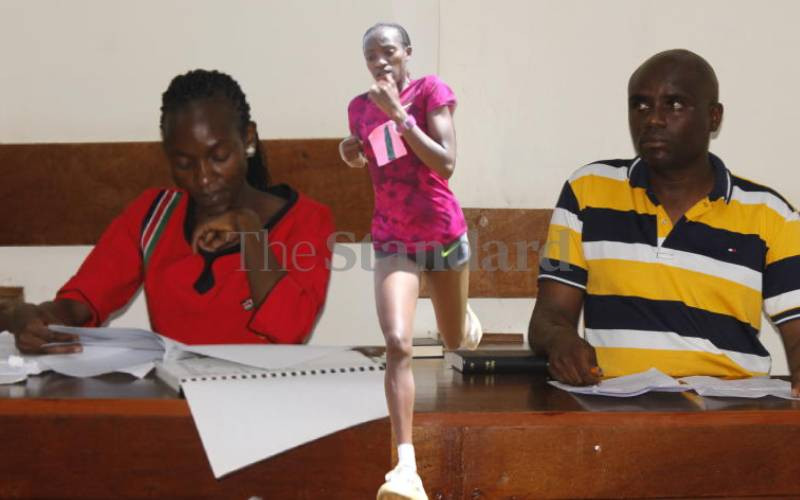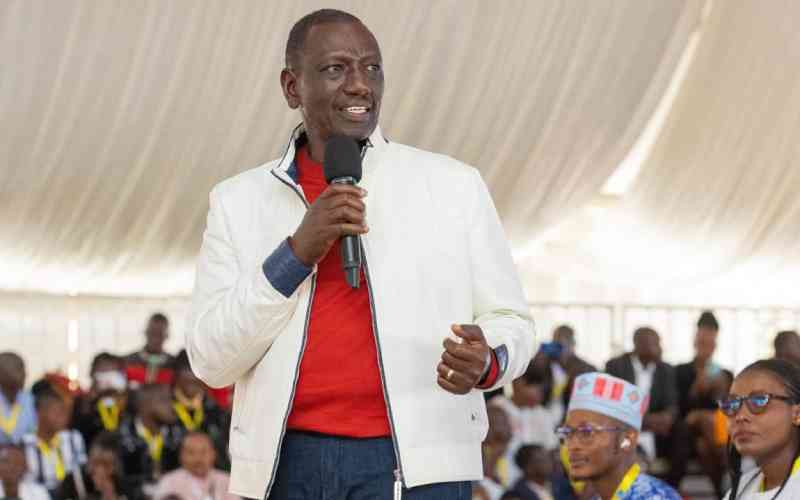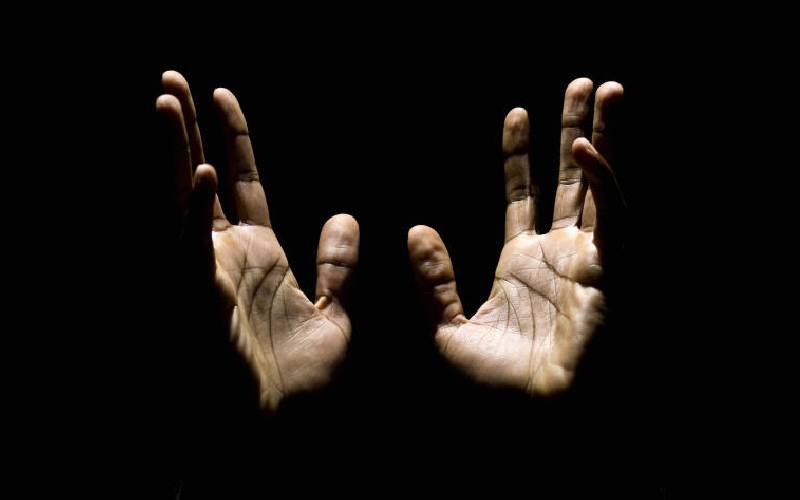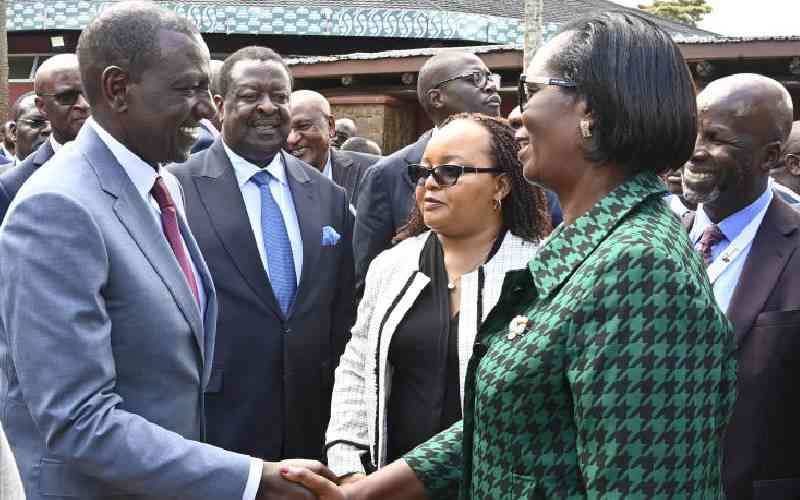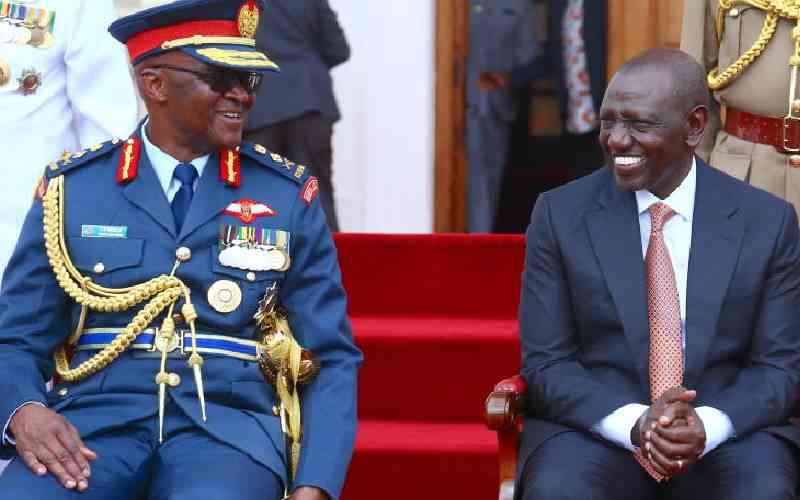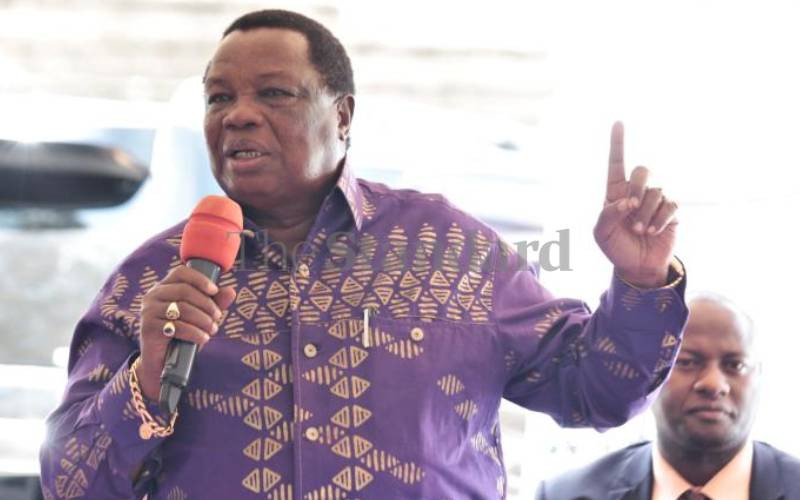President Kibaki stood on the threshold of history as the sun sets on his tenure to declare the pillars of his legacy and personal satisfaction at what he considers his achievements.
In his last address to the Kenyans as President on Jamhuri Day, an event so dear to Kenyans as it signifies freedom and independence, Kibaki not only took stock of his rule but also mapped out the challenges for the fourth President to be elected next year and his or her administration.
He, however, said nothing on perceived soaring levels of tribalism and luckless war against minimising corruption, which gave momentum to his first election as President in 2002, but which he has found most difficult to deal with, just like his predecessors.
When it came to his off-the-cuff remarks, the President was blunt: “What we have achieved can be seen by all and we don’t have to do anything to force you to appreciate it”.
“Kenya is now at the edge of a takeoff to greater prosperity, equity, and unity. We must keep our eyes on the goal of building a great Kenya for present and future generations,” he said. To those who will come after him he challenged: “It will be the responsibility of county and national leaders, working with all citizens, to ensure that this growth momentum is maintained.”
The achievements he enumerated raged from infrastructural, financial, agricultural and a constitutional revolution to opening up equal opportunities for the rich and the poor through ambitious programmes ensuring unfettered access to education, health and media access.
He pointed them out for the memory of Kenyans as he prepares to leave office, a fact discernible from his constant reference to the phrase ‘in the last two ten years, meaning the period by which he will have been in power when he retires next March or April depending on whether the election will be won on round one or if there will be a run-off between the top two candidates.
National attention
Standing out in his scorecard was the fact that despite the troubled start of his second term, the economy has, under the Grand Coalition government, grown at the rate of 4.5 per cent and is projected to hit the 5 per cent mark this year.
Though this is still lower than the 7 per cent mark achieved in his first term under the National Rainbow Coalition, Kibaki spoke with confidence about the fact that he is leaving the country at what he called the ‘take-off’ stage.
He also drew national attention to the fact that unlike past regimes whose economic programmes were dependent on donor aid, under his regime, tax collection has reached Sh700 billion, up from Sh250 billion when he started.
He also proudly declared that the national budget is now funded through local resources to the tune of 95 per cent.
The President also spoke proudly about Kenya Defence Force’s operation in Somalia, and uptake of mobile usage by Kenyans from one million in 2003 to the current 30 million.
His scorecard constituted the country’s transition into next year’s Golden Jubilee, as it laid out the areas to build on, and make Kenya more prosperous, self-sustaining and a more influential regional and global economic actor.
Kibaki spoke at the national fete held at the Nyayo National Stadium, which incidentally draws its name from Moi’s philosophy of following in the footsteps of first President, Mzee Jomo Kenyatta, under the banner of peace, love and unity.
Stay informed. Subscribe to our newsletter
There were echoes of the same message albeit in different words, as the President talked of a more secure and united Kenya. “This economic independence is a key achievement that Kenyans should be very proud of.
We are now in control of our economic destiny and able to make important economic decisions that will improve the lives of our people,” assured the President.
The most memorable moment for Kibaki, he said was the promulgation of the new Charter that saw the country get new Constitution, something Kenya had sought for over two decades but in vain.
“One of my most memorable moments during my ten-year tenure as your President was the promulgation of our new Constitution. After more than 20 years, we were able to put in place a new Constitution developed and approved by Kenyans,” Kibaki said.
After he descended from his ceremonial Commander-in-Chief Land Rover, the President was clear he would be leaving Kenya better than he found it.
“When I reflect on our progress, I am happy of the achievements we have attained together. Our development efforts have been guided by two main blueprints, the Economic Recovery Strategy for Wealth and Employment Creation, and the Kenya Vision 2030.”
The President explained his government’s achievements have been in agriculture, infrastructure development, increased tax revenues, financial inclusivity and development of Information Communications Technology.
Free primary education, which was his brainchild, he said, was a success with close to ten million children having access to basic education. Free secondary tuition, started five years ago, has almost made tremendous progress, he added.
“The result of these initiatives has seen our transition rate from primary to secondary school dramatically rise from 42 per cent to over 70 per cent,” he said.
He revisited how he inherited a battered economy when he took over office in 2002 and how, despite the 2008 post-poll upheaval, the economy has stabilised.
With the achievements of his government, Kibaki said the foundation of transforming the country to a middle-income economy by the year 2030 had been laid down. “As a nation we can confidently say that the foundation to move Kenya into a middle income country by 2030 has been firmly laid.
The journey towards the transformation of our country is on course.”
He outlined how his government expanded the agricultural sector by ensuring a growth from negative three per cent to about six per cent in the past ten years adding that poverty levels have also gone down from 56 to 46 per cent. “In addition, numerous public institutions in the agricultural sector have been revived.
To reduce reliance on rain-fed production, the government has rehabilitated and expanded irrigation schemes such as Bura, Hola, West Kano, Mwea, Nzoia, Ahero and Katilu,” he pointed out in his 33-minute speech.
The initiative, he said, has increased the area under irrigation by about 150,000 hectares.
 The Standard Group Plc is a
multi-media organization with investments in media platforms spanning newspaper
print operations, television, radio broadcasting, digital and online services. The
Standard Group is recognized as a leading multi-media house in Kenya with a key
influence in matters of national and international interest.
The Standard Group Plc is a
multi-media organization with investments in media platforms spanning newspaper
print operations, television, radio broadcasting, digital and online services. The
Standard Group is recognized as a leading multi-media house in Kenya with a key
influence in matters of national and international interest.
 The Standard Group Plc is a
multi-media organization with investments in media platforms spanning newspaper
print operations, television, radio broadcasting, digital and online services. The
Standard Group is recognized as a leading multi-media house in Kenya with a key
influence in matters of national and international interest.
The Standard Group Plc is a
multi-media organization with investments in media platforms spanning newspaper
print operations, television, radio broadcasting, digital and online services. The
Standard Group is recognized as a leading multi-media house in Kenya with a key
influence in matters of national and international interest.

